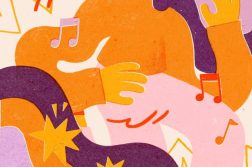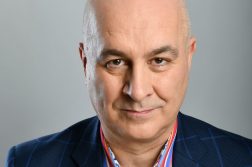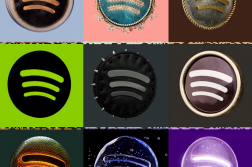This academic year, following the rolling out of WIDE (Welfare, Inclusion, Diversity and Equality) Training for clubs and societies and the introduction of several SUSU Student Officer roles such as Disability Officer, SUSU and the University have shined a light onto invisible disabilities.
People with invisible disabilities often encounter a stigma and a lack of understanding, with people assuming that if they can’t see what’s wrong with them, they must surely be making it up. This led to SUSU rolling out the sunflower badge and email signatures in order to help those with hidden disabilities visually signify that they might need a little extra support and understanding.
The Sunflower Scheme was originally rolled out by Gatwick Airport in May 2016, and since then has been adopted by the NHS, train stations and several supermarkets and organisations. With SUSU now being a part of this scheme and a vocal advocate for people with invisible disabilities, Wessex Scene Editor Charlotte Colombo sat down with the people behind it all to find out more: VP Welfare and Communities Laura Barr, Welfare and Communities Intern Mary Strutt and Disability Officer Lily McDermaid.
Where did this idea start? Did you have any particular inspiration?
Mary: The initial idea came after I witnessed my mum’s recovery from a stroke and the attitudes of the public. I wanted a way for students who needed extra help and support to be visible. The idea stemmed from the Sunflower lanyard idea being implemented in supermarkets and airports.
What has been the most rewarding aspect of this process?
Mary: The most rewarding aspect for me has been seeing people wear them and the support I have received from groups such as NDSoc and Lily. Obviously, this whole campaign wouldn’t have been possible without the support from Laura and SUSU, so I’m so glad that they gave me the platform to discuss this idea and make it a reality!
What has student reception been like?
Laura: The WIDE training, which was mandatory for the first time for all clubs and societies to take, included a large section about making your club and society accessible to those with physical and non-physical disabilities. We have had a lot of good feedback from students regarding this section, however we haven’t seen much engagement otherwise, and there are still some students who are happy to say they don’t see the point of learning or engaging with this topic. I think that’s indicative that there is a demand, but we still have a long way to go in helping allies understand the reasonable adjustments they can make and how much positive impact they can have on disabled students’ mental health by just respecting and including them.
What does Disability Awareness Week mean to you?
Lily: The Disability Awareness Week has meant we have been able to hold events to celebrate diversity and encourage inclusion. It has been really amazing to chat to students and provide them with an understanding. It has also been very beneficial to help students build their support networks and to encourage the use of existing networks, like NDSoc.
What steps can student societies/events make to ensure they can accommodate those with invisible disabilities?
Lily: Myself and Laura held an event where we gave some training to committees on how to make their societies more accessible. The general message from this was that people should ask appropriate questions and make changes to the whole setting, where possible, to make it accessible. More detailed guidance can also be found in the Disability and Accessibility section of the WIDE online training or on the slides from the WIDE session (on the Facebook event).
Laura: Even if a student cannot engage or take part in the main activity, they can still be part of social activities, they can still do small elements of the activity which you can accommodate for, they can still join in on the planning, and they can definitely still join in on celebrating and appreciating that activity. Someone may not be able to take part in surfing, for example, but they can still take part in helping the club grow strategically, enjoying different aspects of the sport, and find friends through a shared appreciation of that sport too. Small things really can make a difference.
What else is the Students Union currently doing to support students with hidden disabilities?
Laura: We have been working very closely with Lily, the Disabilities Officer, to better improve our own services. For example, we’re slowly beginning to implement across the board image descriptions for Union events, as well as any content warnings, or warnings about things that may be inaccessible. This includes entrances, fire exits and any potential quiet spaces. Implementation of these on a permanent basis does take a bit of time though but it’s a right step in the right direction. Lily works closely with the university too, and we’ll soon be discussing reviewing some regulations across the university to ensure they’re as inclusive as possible. If you want to continue this work, please consider nominating yourself for the VP Welfare and Community role or the Disability Officer role.
Sunflower badges are available to collect free of charge from the Students’ Union Building, which is situated in Building 42 on Highfield Campus.
To learn more about WIDE Training, read the answers to Frequently Asked Questions and access it for committee members of your clubs and societies, you can follow this link.
If you struggle with an invisible disability and feel you need help and support, contact Lily or Aimee Orchel (Neurodiversity and Disability Society President) via NDSoc’s Facebook group.
You can also visit the Advice Centre on Level 3, Building 40 on Highfield Campus. They hold Wednesday Drop-in Sessions between 1:30 and 4pm as well as every Friday on Avenue Campus between 1pm and 4pm.



